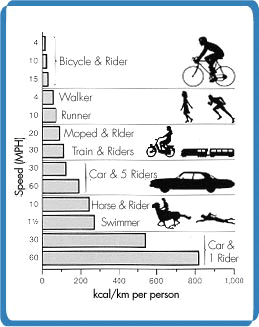Audi has announced that it is starting to use four valves per cylinder in its newest diesel powerplant, available in the sporty A3 and A4 models…except in the United States. Alas, Americans still have no Audi diesels and will have to settle with VW and Daimler-Chrysler for the time being if they want modern diesel engineering. Remember when little gas engines with 16-valve cylinder heads were all the rage in the early 1990s? Diesel is finally getting some of the same engineering attention. Tiscali has a nice blurb about the engines that will ship next month in the UK:
Pump-injector fuel injection and piezo technology combine for the first time in the new 170PS 2.0 TDI engine for A3 and A4. The new four-cylinder, 2.0-litre TDI unit is the first in the Audi range to combine ‘pumpe-duse’ or ‘pump jet’ direct diesel injection with the piezo crystal injector technology from the 2.7-litre V6, 3.0-litre V6 and 4.2-litre V8 TDI engines. It is said to deliver power, torque and acceleration to rival a six-cylinder TDI but with four-cylinder fuel economy.
Awesome. Audi scores again. This company is definitely making some of the best cars in the world right now. Tiscali makes an interesting comparison in another article about the A3:
The Audi is licked by the BMW on performance but has the edge on economy and emissions.
Economy and emissions ARE performance! I know, this still is not the common view, but look what happened to Intel when the market shifted to efficiency as a primary measure of CPU performance. AMD walked away with the market and now Intel is soon to be talking about huge layoffs and reorganization (mark my words) to figure out how to figure out where to get their mojo back. They hired a marketing exec as new CEO to help, yet it’s not a failure of marketing that did them in, it was a failure to add a measure of efficiency to their product metrics. Engineers understand this, but the marketing culture did them in. Ironic, no? Raw power without factoring input was the problem, so marketing power differently is not going to help any more than, say, marketing an SUV to people who care about mileage. But I digress…
So sad that the American market is closed to the pumpe-duse. Maybe things will change this October 15th (September 1st for California because they refused to grant an extension to the petroleum companies) when the ultra-low sulfur diesel (ULSD) EPA regulation goes into effect. Rediculous that the US is still adding sulfur when biodiesel does a better job and is less toxic to humans and the environment.
I am not a doctor but even I knew by 1994 (after diesel trucks in Europe nearly killed me with their exhaust) that the cases of respiratory damage (e.g. asthma) in proximity to roads with diesel traffic would decline significantly if the sulfer additive was banned altogether!!!
The EPA has some rather shocking data that supports my personal experience:
The Agency will require a 97 percent reduction in the sulfur content of highway diesel fuel from its current level of 500 parts per million to 15 parts per million.
[…]
Once this action is fully implemented, 2.6 million tons of smog-causing nitrogen oxide emissions will be reduced each year. Soot or particulate matter will be reduced by 110,000 tons a year. An estimated 8,300 premature deaths, 5,500 cases of chronic bronchitis and 17,600 cases of acute bronchitis in children will also be prevented annually. It is also estimated to help avoid more than 360,000 asthma attacks and 386,000 cases of respiratory symptoms in asthmatic children every year. In addition, 1.5 million lost work days, 7,100 hospital visits and 2,400 emergency room visits for asthma will be prevented.
If you dig around in the details you might also find that delay of implementation of the new standard is was allowed by the Bush Administration to help US petroleum and engine companies off-set the cost of moving away from a fuel additive found damaging to human health. There is also the particulate matter issue, but good luck trying to figure out which of the handful of mostly academic studies is worth citing and who was behind them. I personally know of a construction crew that started running biodiesel and their worker sick leave almost completely evaporated.
Strange twist, no? Biodiesel could easily replace sulfur now, just like it has in Europe (e.g. B5 is the standard in France and VW specifically mentions that it does not void their engine warranty) and would be a boon to jobs, especially in rural areas, and health/productivity in urban areas.
Interesting security and economic trade-offs, especially if you try and calculate the cost of externalities to the petroleum industry.
Now, how do I import one of those AMDs, I mean Audis?

